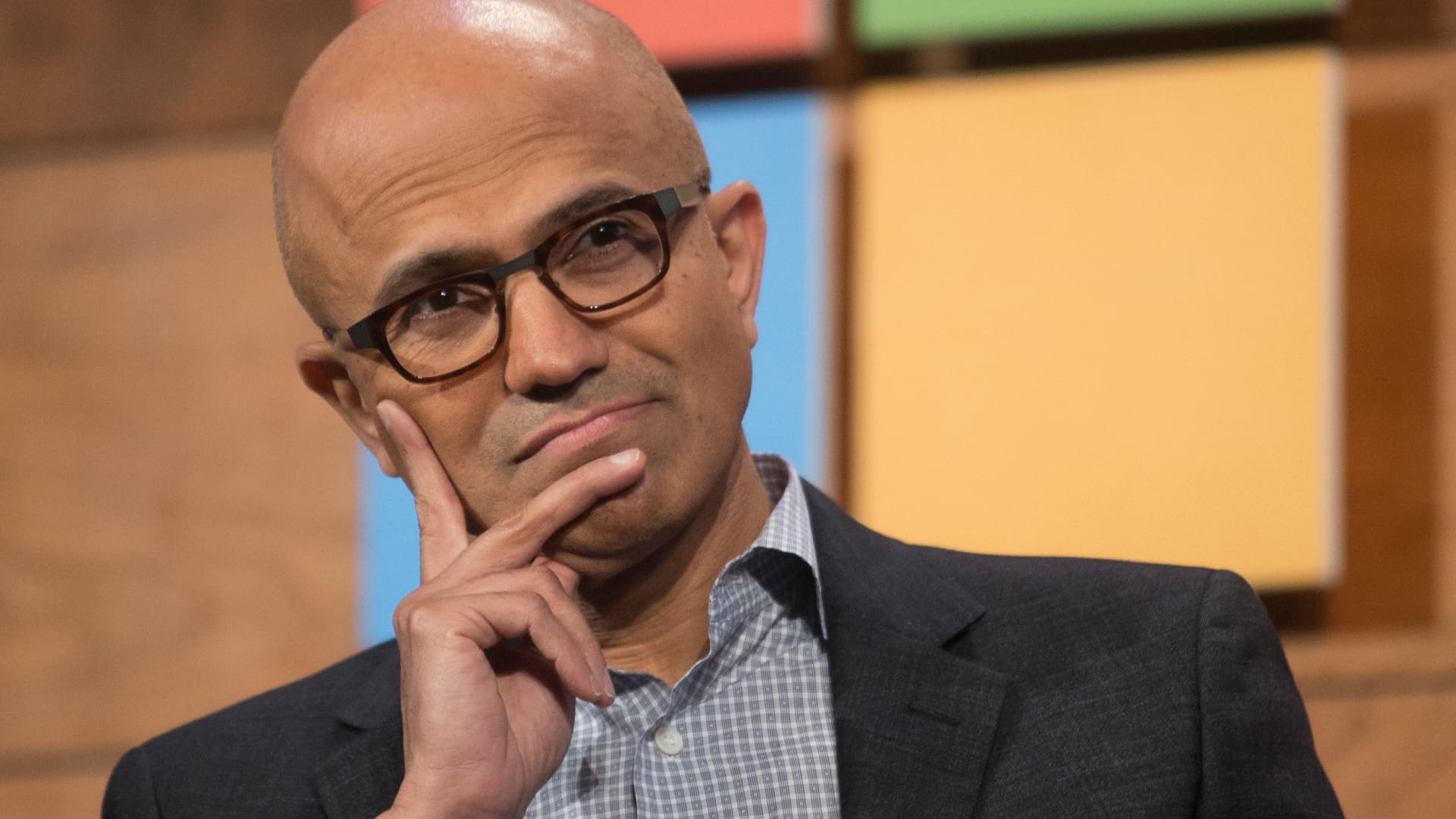
Microsoft CEO Satya Nadella listens to an audience member’s question during the company’s annual shareholder meeting in Bellevue, Washington, Nov. 30, 2016.
Stephen Brashear | Getty Images News | Getty Images
Microsoft on Tuesday announced new data and artificial intelligence products that aim to help health-care organizations easily access and learn from the mountains of information collected by doctors and hospitals.
The health care and life sciences industry is responsible for generating more than 30% of all data produced globally, according to a recent report from Deloitte. But it can be challenging to leverage all that information since it is stored across a variety of different systems and formats. Around 97% of all the data generated by hospitals remains unused, for instance.
To help address this issue, Microsoft said Tuesday at the HLTH conference in Las Vegas, it developed new health-care-specific tools in Fabric, a data and analytics platform the company announced in May. It can combine data from sources such as electronic health records, images, lab systems, medical devices and claims systems so organizations can standardize it and access it in the same place. Microsoft said the new tools will help eliminate the “time-consuming” process of searching through these sources one by one.
Microsoft Fabric for health-care organizations
Microsoft has been trialing Fabric for health care with select customers including Northwestern Medicine, Arthur Health and SingHealth, and it is available in a preview capacity starting Tuesday.
Doug King, the chief information officer at Northwestern Medicine, said Northwestern is still in the process of moving its data into the Fabric system but that the organization is already excited about the potential.
He said consolidating disparate data will ultimately help health systems improve care and see more patients.
“Data is king now within health care, and that goes from everything from understanding what’s happening in the OR, to how many patients are coming in? How many patients are leaving the house or the hospital? And then how can you get them in faster?” he told CNBC in an interview.
King said Northwestern is deploying Microsoft’s technology thoughtfully, but it could be a “game changer” if it is done well. He said the organization is thinking about future applications such as managing patient flow and staffing, as well as how to integrate broader population health data, such as where food deserts are located, into care.
“The current state of technology and Microsoft Fabric and Azure and generative AI, all of that, it’s going to change the way we live. And it’s going to change the way we take care of patients. And it’s probably one of the best shots that we have to solve some of the biggest problems we have within health care,” he said.
Microsoft’s new patient timeline model
New Azure AI health tools
Microsoft also introduced new tools for health-care organizations within its Azure AI services Tuesday.
The company will offer a new generative AI chatbot called the Azure AI Health Bot, which can pull information from a health organization’s own internal data as well as reputable external sources such as the Food and Drug Administration and the National Institutes of Health.
Linishya Vaz, principal product manager at Microsoft Health and Life Sciences, said the chatbot can be used to help staff within an organization ask questions, such as how to treat a specific disease and what the internal protocols and processes are. Patients can also use the chatbot within their patient portal to ask clarifying questions about their symptoms and medical terms they encounter, she added.
“What’s also really important is that we built in guardrails and safeguards into this process,” Vaz told reporters at a press briefing. “There’s a way to verify this information, make sure the customer can do an audit of the answers to see that they are credible.”
Microsoft announced another solution called Text Analytics for health, which can label and extract important medical information from a variety of unstructured data sources such as clinical documents and notes. Vaz said the tool will be released in Spanish, French, Italian, German, Portuguese and Hebrew in addition to English.
Finally, Microsoft unveiled three new models within Azure AI Health Insights, which offers tools to help doctors, nurses and researchers make more informed decisions.
The first model, patient timeline, gives clinicians a simple, chronological overview of a patient’s medical history by using generative AI to consolidate information from different unstructured data sources.
“You’re able to visually see, immediately, there was a medical encounter here, there was a procedure done here, this is the medication that someone took, and [the clinician’s] able to get a really good picture,” Vaz said.
The second model, called clinical report simplification, allows clinicians to use generative AI to simplify reports full of complex medical terminology into language that patients may understand better. And the final model, radiology insights, aims to help clinicians and radiologists by identifying errors and inconsistencies that can come up across different reports. The model can also offer follow-up recommendations.
Vaz said Microsoft’s new health-care tools within Azure AI will help improve patient experiences and allow clinicians to focus on delivering better care. The new solutions are available in a preview capacity starting Tuesday, Microsoft said.






